Zero Property in Math
The zero property, also known as the zero product property, is a fundamental concept in mathematics, particularly in algebra. It states that if the product of two or more numbers is equal to zero, then at least one of the numbers must be zero.
For example, if a and b are two numbers such that a * b = 0, then either a = 0 or b = 0 (or both).
Understanding the Zero Property
The zero property is essential when solving equations and factoring polynomials. When we encounter an equation such as x * (x - 3) = 0, we can apply the zero property to find the solutions. In this case, we know that either x = 0 or (x - 3) = 0, which leads to the solutions x = 0 and x = 3.
Using the Zero Property to Solve Equations
To solve equations using the zero property, follow these steps:
- Set the equation equal to zero.
- Factor the expression on one side of the equation if possible.
- Apply the zero property - set each factor equal to zero and solve for the variable.
- Check the solutions by substituting them back into the original equation.
Study Guide for Zero Property
When studying the zero property, it's important to practice solving equations and factoring expressions. Here are some key points to focus on:
- Understanding the concept of the zero property.
- Identifying when and how to apply the zero property when solving equations.
- Practicing factoring and recognizing when a polynomial can be factored to apply the zero property.
- Verifying solutions by substituting them back into the original equation.
Remember to work through various examples and exercises to reinforce your understanding of the zero property and its applications in mathematics.
[Zero Property] Related Worksheets and Study Guides:
.◂Math Worksheets and Study Guides Eighth Grade. Solving linear equations
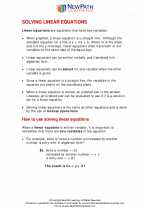
 Worksheet/Answer key
Worksheet/Answer key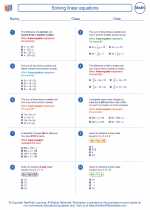
 Worksheet/Answer key
Worksheet/Answer key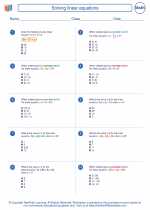
 Worksheet/Answer key
Worksheet/Answer key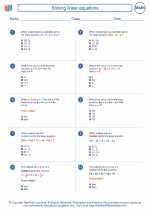
 Worksheet/Answer key
Worksheet/Answer key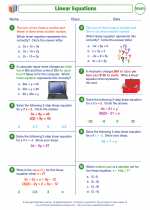
 Worksheet/Answer key
Worksheet/Answer key
